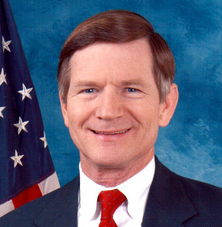 Rep. Lamar Smith (D-Austin) recently (9 Apr)
said he didn’t understand net neutrality
“I think it would be foolhardy to cement some fixed notion of “neutrality”
– whatever that means – into the law.”
So an Austinite explains it to him:
Rep. Lamar Smith (D-Austin) recently (9 Apr)
said he didn’t understand net neutrality
“I think it would be foolhardy to cement some fixed notion of “neutrality”
– whatever that means – into the law.”
So an Austinite explains it to him:
Net neutrality is the underlying principle of a free and open Internet that all users can access the content or run the applications and devices of their choice. These Internet Service Provider companies, from whom you took at least $10,000 each from Verizon and AT&T just last year, will take away our ability to access information by charging higher prices and essentially squeezing out the “little guy” content providers who can’t afford to pay. These companies had nothing to do with inventing the Internet, the World Wide Web or Web browsers. While their infrastructure costs money, they were heavily subsidized for this with our tax dollars, and they already charge for both bandwidth and access. Don’t be fooled into thinking that these companies would not continue to provide these services and innovate if they did not have this additional revenue stream, which will only serve to enrich their shockingly high level of profits.The rest of her post is also well worth reading. Continue reading&mdash A lesson for Rep. Smith on net, Angie Yowell, Public affairs graduate student, 9 April 2007, The Firing Line, The Daily Texan, 11 April 2007
 Creative Voices sums up recent FTC and FCC actions (or lack thereof)
on net neutrality:
Creative Voices sums up recent FTC and FCC actions (or lack thereof)
on net neutrality:

 Net neutrality opponents have apparently gotten up to predicting that
net neutrality will cause the Internet to melt down due to traffic overload;
for example, here’s
Net neutrality opponents have apparently gotten up to predicting that
net neutrality will cause the Internet to melt down due to traffic overload;
for example, here’s